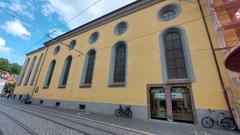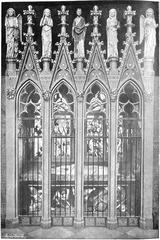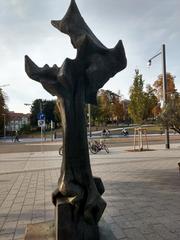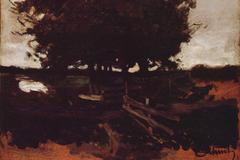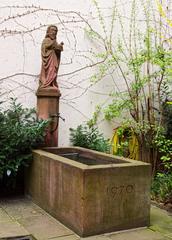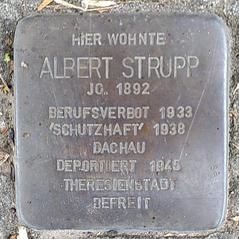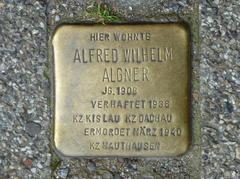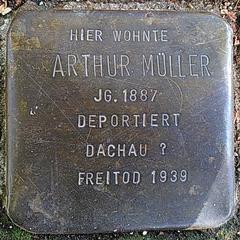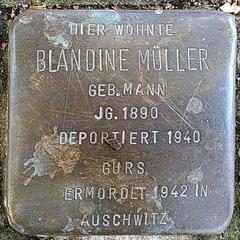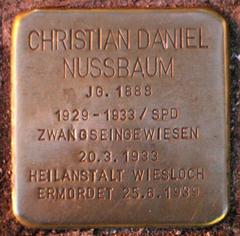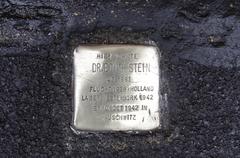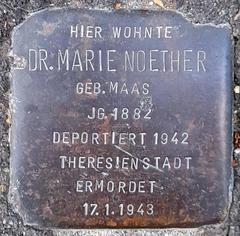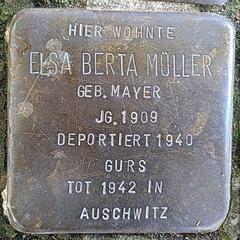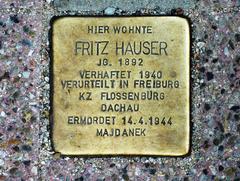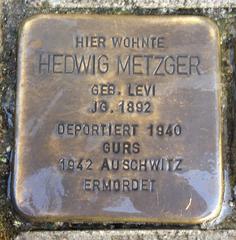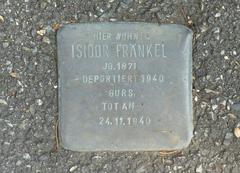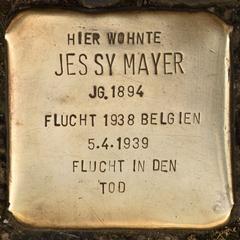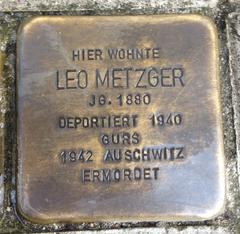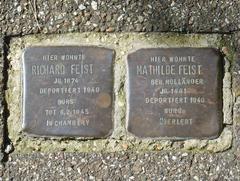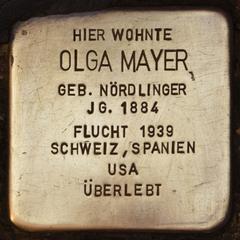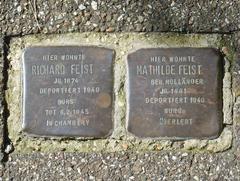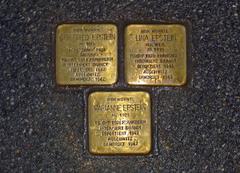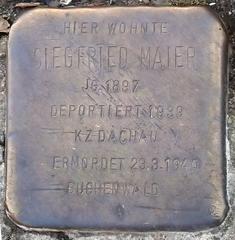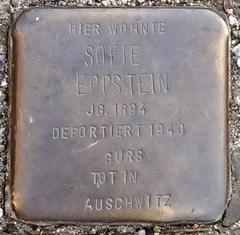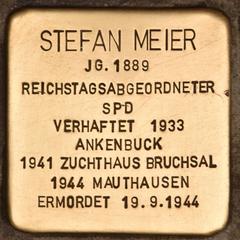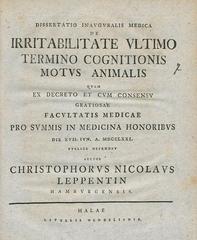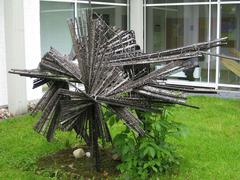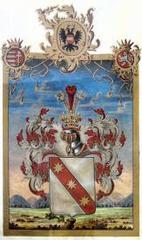Hochschule Für Musik Freiburg: Visiting Hours, Tickets, and Historical Significance in Freiburg im Breisgau
Date: 14/06/2025
Introduction
Nestled in the cultural heart of Freiburg im Breisgau, the Hochschule für Musik Freiburg stands as a leading institution for music education, artistic innovation, and public engagement. Founded in 1946 amid postwar reconstruction, the Hochschule has evolved into an internationally recognized center for music, drawing around 700 students and more than 60 doctoral candidates from across the globe. With a unique blend of tradition and modernity, the Hochschule offers comprehensive academic programs and serves as South Baden’s largest organizer of classical concerts, staging more than 450 public events each year. Its accessible, architecturally distinctive campus in the Oberau district is a gateway to both the arts and Freiburg’s historic attractions, making it a key cultural destination for students, music lovers, and travelers alike. (mh-freiburg.de, visit.freiburg.de)
Table of Contents
- Introduction
- History and Founding (1946–1960s)
- Academic Innovation and Institutional Growth
- Campus Architecture and Facilities
- Educational Structure and Philosophy
- Notable Alumni and Artistic Impact
- Cultural and Regional Relevance
- Visiting Information: Hours, Tickets, Accessibility
- Annual Events: Concerts and Festivals
- International Collaboration and Research
- Visitor Experience: Locations, Facilities, and Amenities
- Guided Tours and Educational Opportunities
- Accessibility and Inclusivity
- Tips for Visitors
- Sustainability and Local Integration
- Nearby Attractions and Travel Advice
- FAQs
- Conclusion and Call to Action
- References
History and Founding (1946–1960s)
Established in 1946 amid Freiburg’s postwar recovery, the Hochschule für Musik Freiburg was envisioned by local cultural leaders and the French occupational administration as a center for musical renewal and European cultural exchange. Its founding rector, Gustav Scheck, aimed to create a “Bauhaus of music,” combining tradition with avant-garde creativity. Initially, the institute occupied two surviving townhouses in the city center, quickly attracting notable faculty and students, including the legendary tenor Fritz Wunderlich. (mh-freiburg.de, wikipedia, edurank.org)
Academic Innovation and Institutional Growth
In 1948, the Hochschule became a state institution under Baden (now Baden-Württemberg), gaining resources for expansion. A major milestone was the 1954 founding of the Institut für Neue Musik by Wolfgang Fortner, which established the Hochschule as a pioneer in contemporary music. Collaborations with the Heinrich-Strobel Foundation and the creation of electronic music studios solidified its reputation for innovation, a legacy that continues today with advanced composition, electronic music, and performance research. (mygermanuniversity.com, mh-freiburg.de)
Campus Architecture and Facilities
The Hochschule’s modern campus, opened in 1983 in Freiburg’s eastern quarter, features spacious, light-filled foyers and acoustically acclaimed performance venues such as the Wolfgang-Hoffmann-Saal and Mathilde-Schwarz-Saal. Facilities include rehearsal studios, a comprehensive music library, electronic music labs, and the Freiburg Institute for Musicians’ Medicine (fim), reflecting the institution’s commitment to supporting both artistic and scientific aspects of music. The campus is fully accessible and centrally located near the city’s historic landmarks. (mh-freiburg.de)
Educational Structure and Philosophy
The Hochschule is organized into five main institutes: New Music, Musical Theater, Historical Performance Practice, the Freiburg Institute for Performing Arts Medicine, and the Freiburg School for the Gifted. It offers Bachelor’s, Master’s, and Doctorate degrees in over 35 major fields, fostering individualized artistic, pedagogical, and academic development. The curriculum balances rigorous tradition with contemporary exploration, attracting a diverse, international student body. (mh-freiburg.de)
Notable Alumni and Artistic Impact
The Hochschule’s faculty and alumni have shaped both German and international music scenes. Distinguished educators such as Aurèle Nicolet and Heinz Holliger have taught here, while alumni like Daishin Kashimoto (Berlin Philharmonic), Tabea Zimmermann, and composer Wolfgang Rihm have achieved global recognition. The institution’s alumni frequently win prestigious competitions and contribute to ensembles such as the Freiburg Baroque Orchestra. (edurank.org, mh-freiburg.de)
Cultural and Regional Relevance
Serving as the largest classical concert organizer in South Baden, the Hochschule holds more than 450 public events annually—concerts, operas, recitals, lectures, and festivals—many of which are free or low-cost. Its vibrant calendar enriches Freiburg’s cultural landscape, complementing the city’s other notable ensembles and historical venues. (bz-ticket.de, mh-freiburg.de)
Visiting Information: Hours, Tickets, Accessibility
- Visiting Hours: The campus is generally open Monday to Friday, 8:00 AM–8:00 PM. Concert venues follow event schedules—refer to the official calendar for details.
- Tickets: Many student recitals are free; ticketed events typically range from €5 to €20. Purchase tickets via the official website or onsite at the box office.
- Guided Tours: Available by advance request, offering insights into the campus, its history, and facilities.
- Accessibility: The campus is fully wheelchair accessible. Assistance and hearing devices are available—contact the administration ahead for arrangements.
- Travel Tips: Centrally located with excellent tram, bus, and bicycle access. Limited parking—public transport is recommended. (visit.freiburg.de, blackforestfamily.com)
Annual Events: Concerts and Festivals
The Hochschule’s event calendar includes over 450 annual public performances:
- Regular Concert Series: Weekly student recitals, masterclasses, faculty and guest artist concerts, and specialized ensemble performances.
- Festivals: The Bläserfestival (Wind Festival) in July and international artistic research conferences, often in partnership with Collège Glarean and other institutions.
- Community Engagement: Concerts, workshops, and outreach programs held across diverse venues in Freiburg. (mh-freiburg.de/veranstaltungen, edarabia.com)
International Collaboration and Research
The Hochschule maintains active partnerships with institutions worldwide, supporting student and faculty exchanges, joint research, and artistic innovation. The Freiburg Institute for Musicians’ Medicine collaborates with the University Medical Center Freiburg to promote musicians’ health. The Collège Glarean graduate school advances artistic research through interdisciplinary projects and international conferences. (wikipedia, mh-freiburg.de)
Visitor Experience: Locations, Facilities, and Amenities
Location and Access
The Hochschule is located at Mendelssohn-Bartholdy-Platz 1, 79102 Freiburg im Breisgau, a short walk from the historic city center and the scenic Dreisam River. It is conveniently accessible by public transportation and bicycle routes. (visit.freiburg.de)
Facilities
Key venues include:
- Wolfgang-Hoffmann-Saal
- Mathilde-Schwarz-Saal
- Kammermusiksaal
- Kleiner Saal
Additional facilities feature rehearsal spaces, electronic music studios, and a comprehensive music library. Visitors are greeted by the “Die Lauschenden” sculpture at the main entrance—a symbol of musical engagement. (visit.freiburg.de)
Amenities
While there is no public cafeteria, nearby cafés and restaurants provide refreshments. Public restrooms are accessible through the “Nette Toilette” program. The Friedenskirche and Ensemblehaus are peaceful spots for relaxation, and the Dreisam riverbank offers scenic walks.
Guided Tours and Educational Opportunities
Special group tours can be arranged by prior appointment, including behind-the-scenes access to rehearsal rooms, instrument collections, and the historic organ. Open days and workshops occasionally provide deeper insight into the Hochschule’s educational philosophy, especially for prospective students.
Accessibility and Inclusivity
The Hochschule is committed to full accessibility, with wheelchair-friendly entrances, designated seating, and hearing assistance devices. Multilingual staff and clear English signage ensure a welcoming environment for international guests.
Tips for Visitors
- Review the event calendar before planning your visit.
- Use public transport or bicycles due to limited parking.
- Photography and recording are prohibited during performances.
- Arrive early for popular events to secure seating.
- Combine your visit with nearby attractions such as the Freiburg Minster and the historic old town.
Sustainability and Local Integration
The Hochschule actively encourages sustainable travel (ample bicycle parking, public transport), aligning with Freiburg’s “Green City” ethos. It is deeply integrated into the city’s cultural scene, supporting experimental and contemporary music as well as fostering local partnerships.
Nearby Attractions and Travel Advice
- Freiburg Minster: A Gothic landmark with free entry to the interior and a ticketed tower climb. (freiburg.de)
- Münsterplatz: Lively market square with weekly farmers’ markets.
- Historic Old Town: Explore shops, cafes, and medieval city gates (Schwabentor, Martinstor).
- Black Forest Trails: Ideal for nature excursions before or after your visit.
- Friedenskirche and Ensemblehaus: Tranquil green spaces and additional music venues nearby.
FAQs
Q: What are the Hochschule’s visiting hours?
A: The campus is open during scheduled concerts and events. Administrative offices: Monday–Friday, 9:00–17:00.
Q: How can I purchase tickets?
A: Tickets are available online via the official website and at the box office.
Q: Is the campus accessible?
A: Yes, the campus and all venues are wheelchair accessible. Special assistance can be arranged in advance.
Q: Are guided tours available?
A: Group tours can be arranged by appointment; check the website for occasional open days.
Q: Is photography allowed during concerts?
A: No, photography and recordings are not permitted during performances.
Conclusion and Call to Action
The Hochschule für Musik Freiburg is a cornerstone of musical excellence, historical heritage, and community engagement in Freiburg im Breisgau. With its rich academic legacy, vibrant event calendar, and accessible, state-of-the-art facilities, it offers an inspiring experience for all visitors. Whether attending a concert, exploring the campus, or discovering the city’s musical roots, the Hochschule invites you to become part of Freiburg’s cultural journey.
Download the Audiala app for real-time event updates and ticketing, and follow the Hochschule’s social channels for the latest news. For comprehensive visitor information and event schedules, consult the official Hochschule website and Freiburg tourism portal.
References
- Hochschule für Musik Freiburg: History, Visiting Hours, Tickets & Cultural Significance, 2025, mh-freiburg.de (https://www.mh-freiburg.de/en/university/general-information/about-the-university)
- Visiting Hochschule für Musik Freiburg: Cultural Events, Tickets, and Visitor Guide, 2025, edarabia.com (https://www.edarabia.com/university-music-freiburg-germany/)
- Visitor Experience and Practical Information at Hochschule für Musik Freiburg: Visiting Hours, Tickets, and Nearby Historical Sites, 2025, visit.freiburg.de (https://visit.freiburg.de/attraktionen/hochschule-fuer-musik)
- Visiting the Freiburg Minster: A Historical Gem in Freiburg im Breisgau, 2025, freiburg.de (https://www.freiburg.de/en/)
- Hochschule für Musik Freiburg – Wikipedia (https://en.wikipedia.org/wiki/Hochschule_f%C3%BCr_Musik_Freiburg)
- University of Music Freiburg im Breisgau – MyGermanUniversity (https://www.mygermanuniversity.com/universities/University-of-Music-Freiburg-im-Breisgau)
- Hochschule für Musik Freiburg – Alumni – EduRank (https://edurank.org/uni/freiburg-conservatory-of-music/alumni/)
- Freiburg Travel Guide – Black Forest Family (https://www.blackforestfamily.com/travel-in-germany/visiting-freiburg-germany-the-ultimate-travel-guide)
